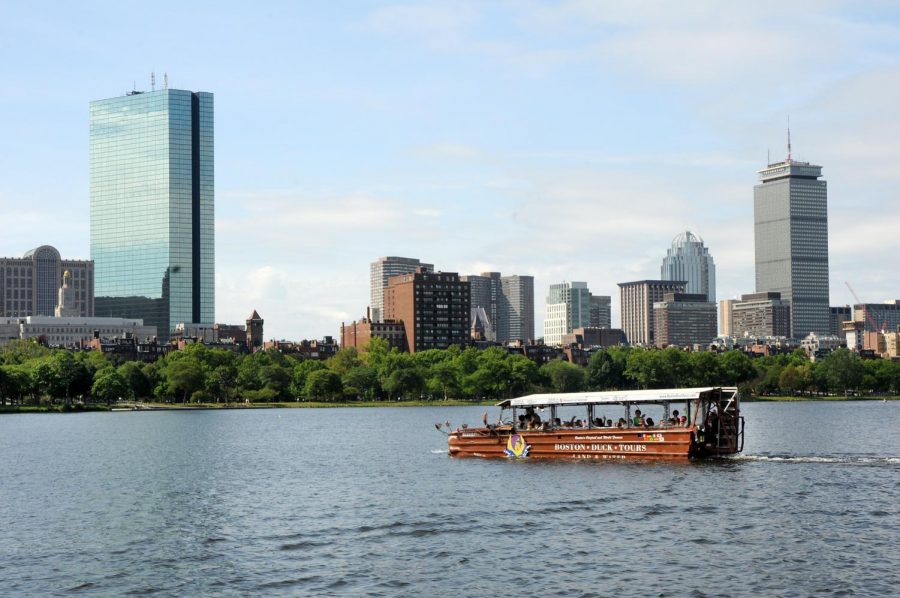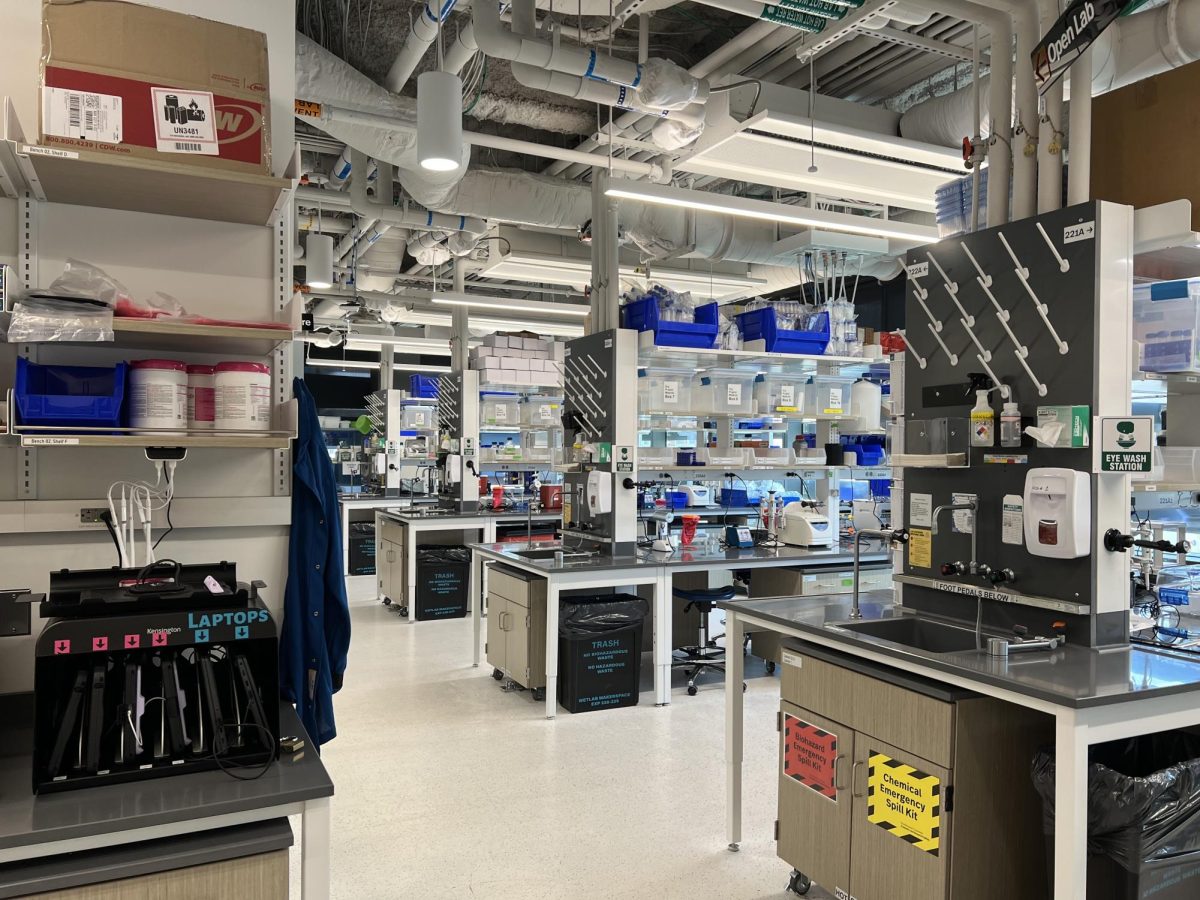WWII-era duck boats carry tourists and championship teams through Boston alike
Photo courtesy Boston Duck Tours
Boston Duck Tours has been providing tourists and athletes with rides across the city for years.
February 13, 2019
Crafted to face battle, these amphibious vehicles once carried soldiers onto the shores of Normandy. Today, they carry tourists in cities across the nation, as well as the athletic champions of Boston.
The duck boat tour phenomenon has played a major role in the tourism industry of several U.S. cities, including Boston, Philadelphia and San Diego. But this popular attraction was not originally created for its current use.
The former model, the DUKW (D for model year 1942, U for amphibious utility vehicle, K for front-wheel drive, W for dual rear-axle), was built by General Motors about six months after the United States joined forces with the allies in World War II.
The amphibious vehicle filled the need for dockless transportation of supplies from ships to shore. Made to carry two loads of cargo, 21,000 DUKWs carried 3 million tons of troops and equipment around Europe throughout the war, including into the Battle of Normandy. Soldiers had traditionally called these boats “ducks.”
After the war, many of the duck boats were sold or granted to enforcement units throughout the U.S., including the National Guard. And despite its renown for duck boat tours, Boston entered the game a little late. The trend launched in Wisconsin Dells, Wisconsin, in 1946, and made its way to Boston 48 years later.
Andy Wilson, the founder and former CEO of Boston Duck Tours, was exploring the country when he first encountered the duck boat in Tennessee.
“When he came back to Boston, he thought of the idea of touring people around Boston and taking a splash in the Charles River,” said Boston Duck Tours historian and safety officer James Healy.
When the company started in October 1994, Wilson only owned four DUKWs and had a staff of 15 employees, including four conductors, which the company has since dubbed “conDUCKtors.”
Today, the company has 115 workers from the first day of spring through November and owns 28 amphibious vehicles that resemble the DUKW. Due to the high-maintenance demands of the original vehicles, they began to phase them out in 2006. It is estimated that 600,000 people ride with Boston Duck Tours annually.
“Our primary goal is to educate,” Healy said. “We want people who come to Boston to leave with an appreciation for the city and what it has contributed, while doing it in a fun way.”
Boston Duck Tour company has done just that for many tourists.
“Being on the duck tour allowed me to hit all of the historical and modern locations of importance throughout the city in an easy and comfortable environment,” said Avi Carr-Gloth, 20. Currently a student at Emerson College, Carr-Gloth is originally from New York, and ‘played tourist’ while accompanying his campers on a field trip to Boston in the summer of 2016. “The driver was super nice and answered all of our questions. Getting to ride in the Charles was amazing as well.”
What the Boston Duck Boats have been most noted for, carrying Boston’s athletic champions along their victory parade, only started in 2002 — the first time the New England Patriots won the Super Bowl.
“The Patriots won and the mayor asked if the city could use our ducks to carry the team in the parade,” Healy said. “And of course, we said yes.” The Boston Duck Tour company has donated their vehicles to the city for every parade since — 12 in total, combining the Patriots, Red Sox, Bruins and Celtics triumphs.
Northeastern journalism Professor Charles Fountain, a self-described life-long New Englander, witnessed the incorporation of the duck boats into the parades of Boston’s champions.
“Once you use the duck boats for the second parade, you were going to use them for every parade,” Fountain said. He also recalled that the parades last featured a dip into the Charles River during the Red Sox World Series victory route in 2013. “The duck boats have become a national symbol because there’s so many of them [parades].”
In Boston, duck boats are more than a tourist attraction. They are a piece of this nation’s past, a symbol of victory, and to many, an important part of the place they call home.







